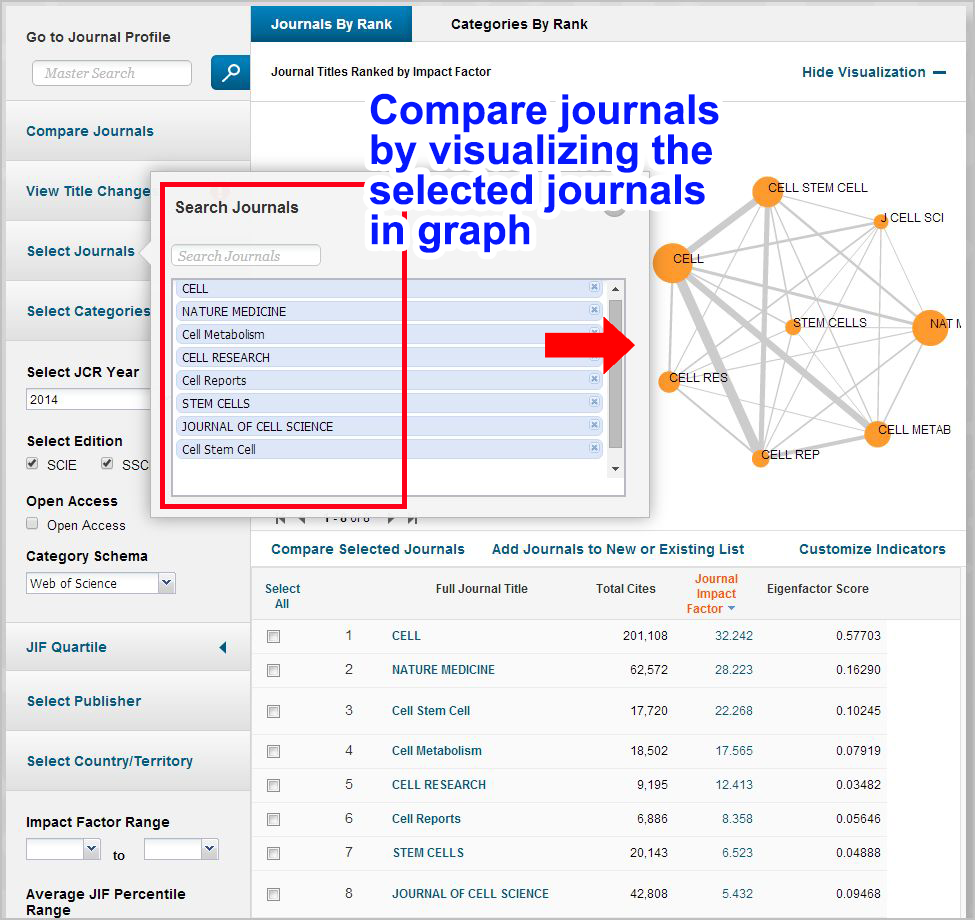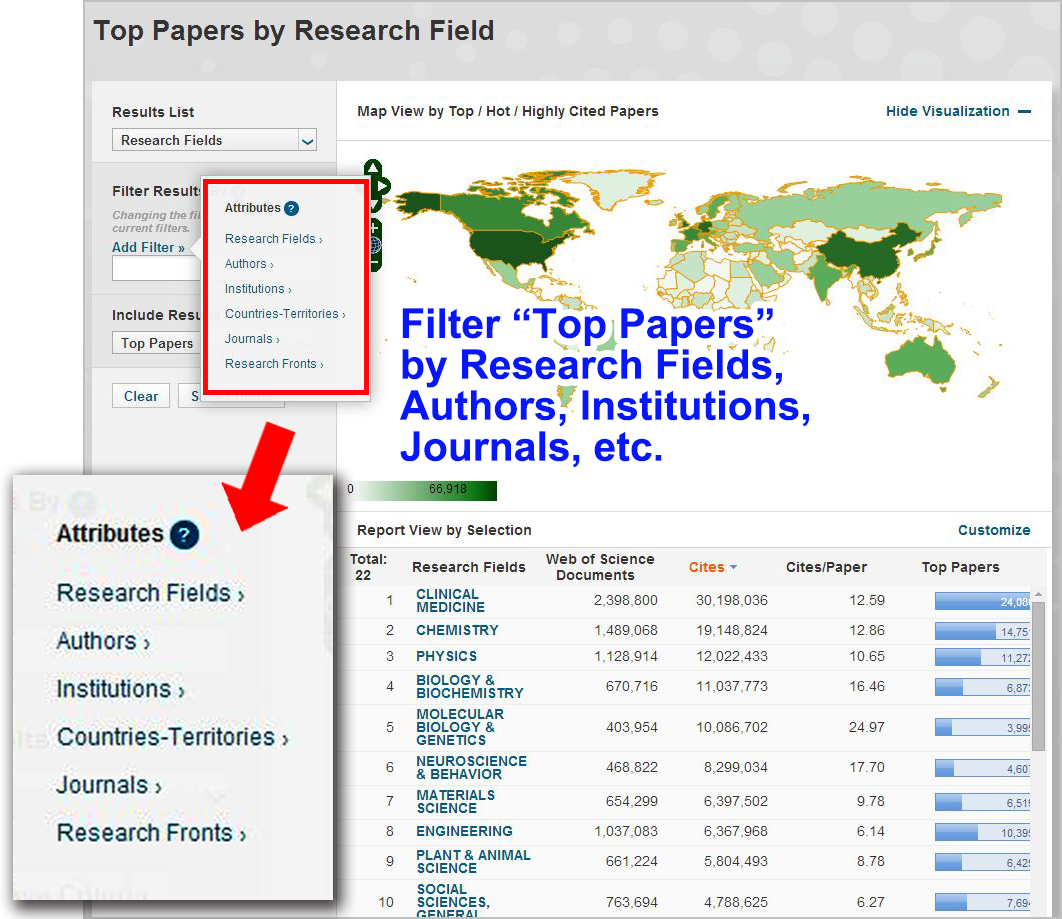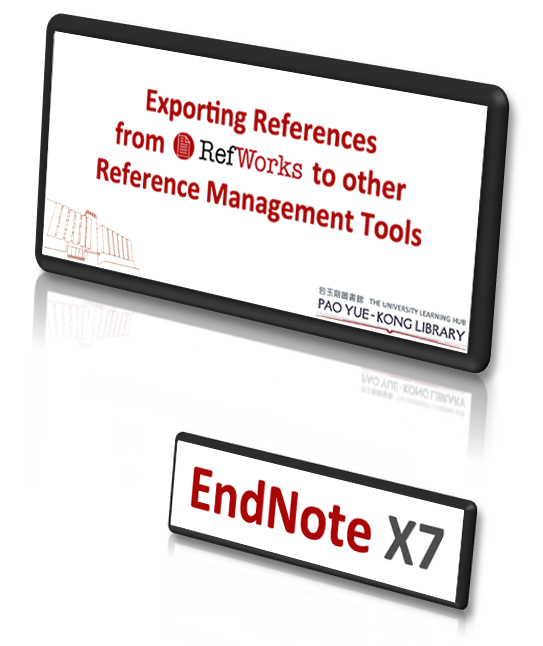New interface of Journal Citation Reports and Essential Science Indicators
The new InCites JCR platform offers interactive features which allow researchers to experience visualizations of JCR indicators to compare, evaluate and inform their decisions on published research in varying fields.
Specifically, it allows you to:
- review and compare journal titles in desired subject categories, within a specific institute, based on a chosen indicator
- recognize trending journals in key research categories
- identify ideal journals in which to publish your forthcoming research
- visualize the results in graphs
Access InCites JCR | Online tutorials: Using InCites JCR


ESI offers data for ranking authors, institutions, nations, and journals. The new InCites ESI platform identifies the influential individuals, institutions, papers, publications, and countries in a field of study – as well as emerging research areas that could impact work.
Specifically, it allows you to:
- calculate metrics based on a 10-year rolling file
- determine Top Papers, Highly Cited Papers, Hot Papers by Research Fields, Authors, Institutions or Journals
- visualize the results in maps
Access InCites ESI | Online tutorials: Using InCites ESI
Export Your References to EndNote - RefWorks Expires in August!
You may refer to this Guide to get steps for exporting your references from RefWorks to EndNote or other reference management tools.
Other useful tips for using EndNote:
Look out for the NEW PolyU Institutional Research Archive
Explore PolyU’s research outputs and see the authors behind them!
The PolyU Institutional Research Archive (IRA) will be launched in Jan 2016 after months of testing the beta site.
The PolyU IRA aims to increase the visibility of PolyU's research and facilitate knowledge transfer. It is an online platform that indexes and disseminates the research and scholarly output created by the PolyU community.
- Researcher profiles: showcasing publications, research interests and professional activities
- Researcher Identifications: displaying ORCiD, ResearcherID and Scopus Author ID on a single page
- Richer collection: not limited to full-text journal articles with bibliometrics, but also covers other types of research output such as projects, conference papers, awards and presentations.





 PolyU Library AI Chatbot
PolyU Library AI Chatbot